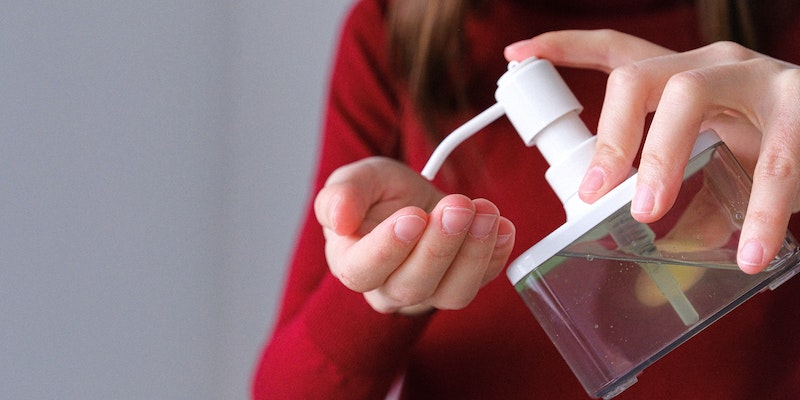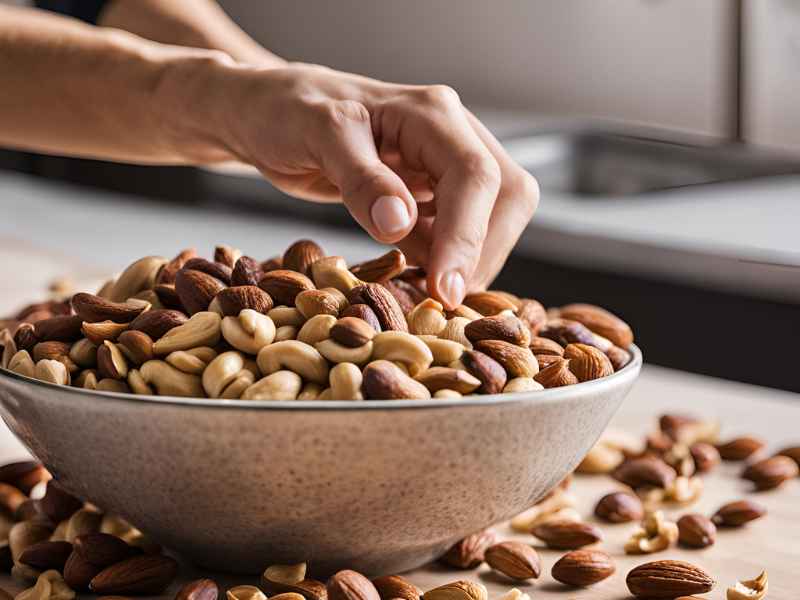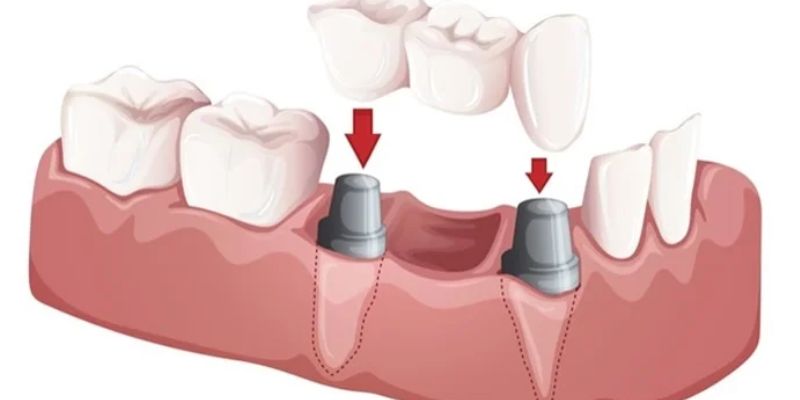Identifying Uncommon Dehydration Symptoms and Hydration Strategies
2023-12-12 00:00:00 By Nancy Miller
Many of us fail to realize how crucial it is to be well hydrated until we're very dehydrated. In addition to helpful tips for staying hydrated, this article will highlight the subtle warning signs of dehydration. Your mental clarity, energy levels, and physical health may all take a hit when you're dehydrated. While dry lips and dark urine are obvious signs of dehydration, there are many subtle ones that people may miss. You can protect yourself from the harmful consequences of dehydration by keeping an eye out for these warning signals. Come along as we explore the peculiar symptoms of dehydration and how to make water a top priority for better health and greater energy.

Recognizing Common Dehydration Symptoms
Thirst and Dry Mouth
Some of the most obvious indicators that your body needs extra fluids are feelings of thirst and dry, sticky tongue. Your body will tell you to drink water if it detects that you are dehydrated. As a defense mechanism, your body experiences dry mouth and thirst as it strives to maintain its fluid equilibrium. Dehydration and its possible health effects might be worsened if these warnings are ignored. To quench your thirst or alleviate dry mouth, it's important to listen to your body and drink water when you feel the need.
Dark Urine
A person's hydration level may be inferred from the color of their urine. Dehydration is often indicated by urine that is dark in color, which may range from amber to a deep yellow. Your urine should be a light yellow or almost colorless when you're well hydrated. However, your kidneys will try to save water as you lose fluids, which means your urine will be darker in color and more concentrated. A simple yet efficient technique to monitor your hydration status and take fast action to restore fluids is to monitor the color of your urine.
Fatigue and Weakness
Your energy levels may drop as a result of dehydration, which impacts more than just your body's fluid balance. Weakness and exhaustion are symptoms of dehydration. This happens because a lack of fluids reduces blood flow and oxygen delivery to your organs and muscles, which in turn makes you feel weak and exhausted. If you want to regain your strength and energy, you must learn to recognise these indications so that you can drink plenty of water.
Unusual Signs of Dehydration
Headache and Dizziness
Unexpected symptoms of dehydration include episodes of vertigo and chronic headaches. Brain blood arteries constrict due to a drop in blood volume, which occurs when the body does not get enough fluids. Headaches, caused by this narrowing, may be anything from a little ache to a deep, throbbing agony. Furthermore, lightheadedness and dizziness may result from electrolyte imbalances, which can be caused by dehydration. Hydration is essential for a number of reasons, including warding off headaches and vertigo and satisfying your thirst.
Bad Breath and Dry Skin
Although dry skin and poor breath may not appear connected to dehydration at first glance, they are really symptoms of inadequate fluid consumption. Dry mouth and foul breath are symptoms of dehydration because it lowers saliva production. Dry, flaking, or itchy skin is another symptom of an under hydrated body. When the skin's natural barrier is compromised due to a lack of moisture, it becomes more prone to irritation and pain. Keeping yourself hydrated is important for more than simply avoiding dehydration; these less obvious symptoms serve as a reminder of this.
Muscle Cramps and Rapid Heartbeat
Unexpected physical symptoms like a racing heart and muscular cramps might be brought on by dehydration. Muscle cramps and spasms are more likely to occur in those who are dehydrated. Potassium and sodium are electrolytes that are essential for proper muscle function, and when they go out of whack due to dehydration, this happens. Furthermore, a decrease in blood flow due to inadequate hydration might make your heart work harder to pump blood all around your body. Consequently, you might feel palpitations or a racing heart. By being aware of these uncommon sensations, you can make sure to stay hydrated and stop these discomforts from becoming worse.

Unusual Signs of Dehydration
Headache and Dizziness
Unexpected symptoms of dehydration include episodes of vertigo and chronic headaches. Brain blood arteries constrict due to a drop in blood volume, which occurs when the body does not get enough fluids. Headaches, caused by this narrowing, may be anything from a little ache to a deep, throbbing agony. Furthermore, lightheadedness and dizziness may result from electrolyte imbalances, which can be caused by dehydration. Hydration is essential for a number of reasons, including warding off headaches and vertigo and satisfying your thirst.
Bad Breath and Dry Skin
Although dry skin and poor breath may not appear connected to dehydration at first glance, they are really symptoms of inadequate fluid consumption. Dry mouth and foul breath are symptoms of dehydration because it lowers saliva production. Dry, flaking, or itchy skin is another symptom of an under hydrated body. When the skin's natural barrier is compromised due to a lack of moisture, it becomes more prone to irritation and pain. Keeping yourself hydrated is important for more than simply avoiding dehydration; these less obvious symptoms serve as a reminder of this.
Muscle Cramps and Rapid Heartbeat
Unexpected physical symptoms like a racing heart and muscular cramps might be brought on by dehydration. Muscle cramps and spasms are more likely to occur in those who are dehydrated. Potassium and sodium are electrolytes that are essential for proper muscle function, and when they go out of whack due to dehydration, this happens. Furthermore, a decrease in blood flow due to inadequate hydration might make your heart work harder to pump blood all around your body. Consequently, you might feel palpitations or a racing heart. By being aware of these uncommon sensations, you can make sure to stay hydrated and stop these discomforts from becoming worse.
Conclusion
For optimum health, it is necessary to recognise and manage the lesser-known indicators of dehydration. In addition to thirst and black urine, other symptoms of dehydration include headaches, foul breath, and muscular cramps. You can make being hydrated a priority in your everyday life by being aware of these subtle signs. You may improve your chances of being well hydrated by combining mindful hydration strategies, eating foods that are high in water content, and drinking enough water every day. Keep in mind that being well hydrated is essential for your overall health and has many advantages beyond just reducing your thirst.








